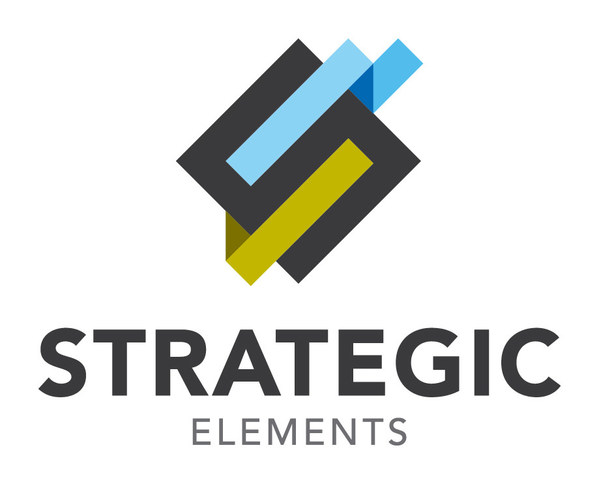SOR Autonomous Platform Enters Defence Sector
- Written by PR Newswire

|
PERTH, Australia, May 14, 2021 /PRNewswire/ -- Strategic Elements Ltd (ASX:SOR) is pleased to report that it will conduct a feasibility and scoping study with the Defence Science and Technology Group (DST Group) for autonomous sensing and search of chemical, biological, radiological and nuclear (CBRN) sources.
The feasibility and scoping study will cover the integration of DST Group search algorithms into subsidiary company Stealth Technologies' autonomous unmanned ground vehicle (UAG) and unmanned airborne vehicle (UAG) hardware and software platforms and development of an initial software exemplar.
The DST Group is part of the Australian Department of Defence dedicated to providing science and technology support to safeguard Australia and its national interests. One of the key DST Group priorities is to improve the Australian Defence Forces' CBRN defence capability through the protection of personnel from the strategic, tactical and physiological impacts of exposure to toxic chemicals and materials and CBRN weapons.
Operating in chemical, biological, radiological and nuclear (CBRN) threat environments is arguably the hardest assignment that war fighters have. Not only do they have to perform strenuous tasks such as keeping adversaries at bay or supporting civilians in the aftermath of a disaster, they also face the challenge of potentially having to do these tasks in the presence of dangerous and invisible threats that spread rapidly and widely if uncontained.
The threat of CBRN attacks against military forces and civilian populations is growing. State and non-state actors are increasingly willing to use these indiscriminate methods, and knowledge of CBRN agent manufacturing processes is proliferating. Technology has the capability to enable teams to respond faster and more flexibly to CBRN events; achieve enhanced situational awareness; and manoeuvre safely, effectively and unimpeded in complex contaminated environments for prolonged periods of time.
The proposal of the feasibility and scoping study is to integrate DST developed search algorithms for locating CBRN sources within a geographic area, into a Stealth Technologies UAV (drone) that is autonomously launched and landed by a Stealth Technologies autonomous UGV (ground vehicle). The autonomous UGV would enable carriage of drones and sensors into the target environment keeping humans at a safe distance. The autonomous UAV enables rapid traversing of the area using sensors to map and/or monitor the location of CBRN sources.
AxV Next Generation Development
Stealth Technologies has developed custom robotics built on top of its AxV autonomous mobile platform to develop the first 'automated perimeter security solution' of its kind anywhere in the world. The Company collaborated with US giant Honeywell and the Western Australian Department of Justice to deploy an autonomous security vehicle (ASV) at the Eastern Kalgoorlie Regional Prison. The ASV is being deployed to increase the security of the perimeter and reduce the amount of human involvement in testing and patrols, freeing those staff up for more skilled tasks. The global perimeter security market is forecast to grow quickly reaching USD 282.26 Billion by 2025.
Stealth Technologies next generation AxV Autonomous Platform is being upgraded with a 'sensor fusion stack' that includes additional sensors such as LiDAR, radar, GPS, sonar, thermal imaging and different types of cameras, with each sensor adding different strengths to the fusion data generated. New autonomous releases are being designed for use in various sectors such as security, mining and defence.
The Sensor Fusion stack will also include integration with ongoing collaborative work with Planck AeroSystems enabling Autonomous Drones to launch and land autonomous surveillance flights from a moving ASV platform. Planck is a global leader working with the United States Department of Defense's Combating Terrorism Technical Support Office (CTTSO), the United States Department of Defense and Department of Homeland Security on various aspects of its technology.
In addition, the CSIRO Wildcat SLAM technology will also be integrated with the Sensor Fusion stack. The Company has licensed world leading CSIRO technology that enables robots to work together in teams. The Wildcat SLAM technology leverages more than ten years of research and development at CSIRO's Data61. Wildcat is a key enabling technology in 'robot perception', a system that endows the robot with the ability to perceive, comprehend and reason about the surrounding environment.
Costs of the feasibility and scoping study and software exemplar of approx.$50,000 will be paid by the DST Group to Stealth Technologies with deliverables intended for approx. June 30Th 2021.
Strategic Elements Managing Director Charles Murphy said "Stealth Technologies is building a flexible autonomous platform that we intend to deploy in sectors such as security, defence and mining to name a few. We strongly believe there is a huge shift underway in the automation of human function and the machines that we use. The automation and robotics platform that we are continuing to build and deploy has a tremendous opportunity in front of it and we have a great technical team being superbly led by Executive Director Elliot Nicholls. Stealth Technologies is looking forward to working with the world class team at the DST Group".
Strategic Elements Background
Investors in SOR potentially pay no tax on capital gains from selling their SOR shares as the Company operates under a Federal Government program setup to encourage investment into innovation. Strategic Elements operates as a 'venture builder' where it generates high risk-high reward ventures and projects from combining teams of leading scientists or innovators in the technology or resources sectors.
This announcement was authorised for release by Strategic Elements' Board of Directors.
Read more https://www.prnasia.com/story/archive/3378012_AE78012_0







